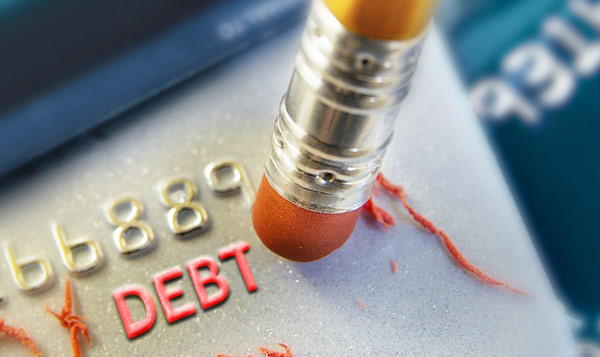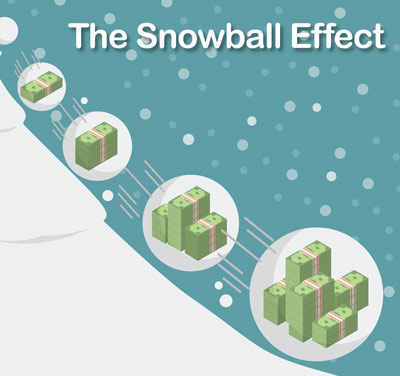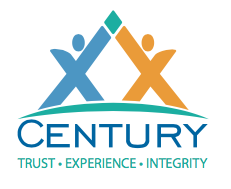Which Debts Should I Pay Off First?
Posted by Century Support Services on Nov 23, 2020

The overarching goal of debt reduction is always to reduce how much outstanding debt you have, but there isn’t only one way to accomplish this. People successfully use a variety of different strategies to pay down their debt, and each of these major different strategies approaches the question of which debts to pay off first slightly differently.
None of these different strategies are one-size-fits all, but they’re each helpful in certain situations. For example, people who have a few high-interest debts that they’re current on might choose the avalanche method to minimize the total amount of interest they pay. Someone who has many debts that they struggle to pay will likely find that debt settlement is a more practical and more financially sound solution for their situation.
You’ll want to choose a debt reduction strategy that makes sense for your situation, and what debt you should pay off will depend on several different factors. Balances, interest rates and personal goals are a few of the main items to consider as you review the following methods.
Paying Off Highest Interest Debts First

The avalanche method is a debt reduction strategy that focuses on paying off the highest interest debts first. With this method, you:
- List your debts in order of highest interest rate to lowest rate
- Make minimum monthly payments on all of your debts
- Direct any available additional income toward the highest rate debt
- Direct freed-up monthly payments toward your next debt as debts are paid off
Because credit cards frequently have high annual percentage rates, this method often results in paying off credit card debt first. If you don’t have credit card debt or have a low-interest promotional card, though, you may end up paying off a personal loan, variable rate student loan or other high-interest debt first.
The avalanche method of debt reduction makes mathematical sense since paying off debts in order of their interest rates reduces how much interest you pay overall. Making progress with the method can be laborious if your highest interest debt has a high balance. Sometimes, people become discouraged when paying toward a high-balance debt and stop pursuing debt reduction as aggressively.
The avalanche method may make sense if you have smaller balances and/or higher interest rates. You must be able to make extra payments for the method to work. Should you choose the avalanche method, the first debt to pay off is the one with the highest interest.
Paying Off Smallest Debts First
The snowball method of debt reduction focuses on paying off the smallest debts first. With this method, you:
- List your debts in order of smallest balance to largest balance
- Make minimum monthly payments on all of your debts
- Direct any available additional income toward the debt with the smallest balance
- Direct freed-up monthly payments toward your next debt as debts are paid off

This method often results in paying off several small debts in a relatively short amount of time, which can be quite encouraging. As you see debts get paid off, your motivation will hopefully increase. By the time you’re onto those high-balance debts, you should be quite motivated to attack them with a vengeance.
Prioritizing debts from smallest to largest irrespective of interest rates organizes the payoff schedule on an emotional rather than a mathematical basis. Even though the avalanche method mathematically should result in paying less interest overall, many people pay off debts faster with the debt snowball method because they become so motivated.
Paying Off Your Debts by Credit Limit

Some people choose to pay off their debts in order of how close they are to each debt’s credit limit. With this method, you:
- Calculate each debt’s credit utilization (balance / maximum credit x 100 percent)
- List the debts in decreasing order of credit utilization
- Make minimum payments on all of your debts
- Direct any available additional income toward the debt with the most utilization
- Direct freed-up monthly payments toward your next debt as debts are paid off
The main benefit of this strategy is that it can boost your credit score faster than the other methods, because credit utilization is a significant portion of your credit score. This may be a notable benefit if you need a good credit score for an upcoming major purchase.
Paying off debts according to credit score can result in paying more in fees and interest than you would if you used another method, however.
Consider Debt Settlement
While the three strategies above may be right for certain situations, they don’t work well if you have a large amount of debt and can’t make more than your monthly minimum payments. If you’re financially overburdened by debt, you may want to consider debt settlement as a more practical method.
Debt settlement stops payments on all unsecured debts that you enroll in a plan. A reasonable monthly payment is then set aside each month, and the funds that accumulate are used to settle debts for less than what you owe. The vast majority of debts that are settled cost less to settle than what the original balance on them is, and people usually save money with this option.
Contact Century to Learn About Debt Settlement
 If debt settlement sounds like it might be the right debt reduction strategy for you, contact Century Support Services. Century has helped hundreds of thousands of people settle debts that they otherwise couldn’t pay, and has saved clients a lot of time, aggravation and money in the process. To date, Century has settled more than $1.3 billion in debt and maintains a 94% satisfaction rating.
If debt settlement sounds like it might be the right debt reduction strategy for you, contact Century Support Services. Century has helped hundreds of thousands of people settle debts that they otherwise couldn’t pay, and has saved clients a lot of time, aggravation and money in the process. To date, Century has settled more than $1.3 billion in debt and maintains a 94% satisfaction rating.
To get started, you’ll receive our free assessment and our Certified Debt Specialists will create a personalized program plan for you.
To learn more about the debt settlement process or if you have any general questions relating to how long does debt settlement take or how long will it take to recover from debt settlement, we’re happy to answer any questions.
Contact us today!